Poland’s presidential election, Eurovision returns, Triennale Milano and hospitality highlights.
|
Tuesday 13/5/25
|

|
|
London
Paris
Zürich
Milan
Bangkok
Tokyo
Toronto
|
|
|
|

Good morning from Midori House. For more news and views, tune in to Monocle Radio. Here’s what’s coming up in today’s Monocle Minute:
THE OPINION: Romania gambles on flights to Syria
CULTURE: The Eurovision Song Contest returns
POLITICS: Poland prepares for the polls
DESIGN: Triennale Milano’s 24th International Exhibition opens
THE LIST: Hospitality highlights from Japan to Greece
|
|
When Romania’s Dan Air announced the launch of flights from the EU to Syria last week, it raised more than a few eyebrows in aviation circles. While technically open, Syrian airspace remains off limits for most European carriers. The memory of Malaysia Airlines Flight MH17, downed over Ukraine in 2014, still lingers as a sobering reminder of what can go wrong when commercial aviation crosses into contested skies. Much of the fighting in Syria’s civil war might be over but Germany, France, the UK and others continue to prohibit flights in the country’s airspace.
Re-engaging with conflict zones is fraught with difficulty. Beyond the obvious security concerns, flying through or into high-risk regions drives up insurance premiums, exposes airlines to legal and diplomatic entanglements and requires dealing with the growing threat of GPS jamming. Regulatory bodies such as the EU Aviation Safety Agency and the US’s Federal Aviation Administration frequently issue restrictive advisories, rendering operations in such zones both bureaucratically complex and reputationally risky. This, in turn, has opened up a niche for smaller, agile players willing to take calculated risks, such as Dan Air.
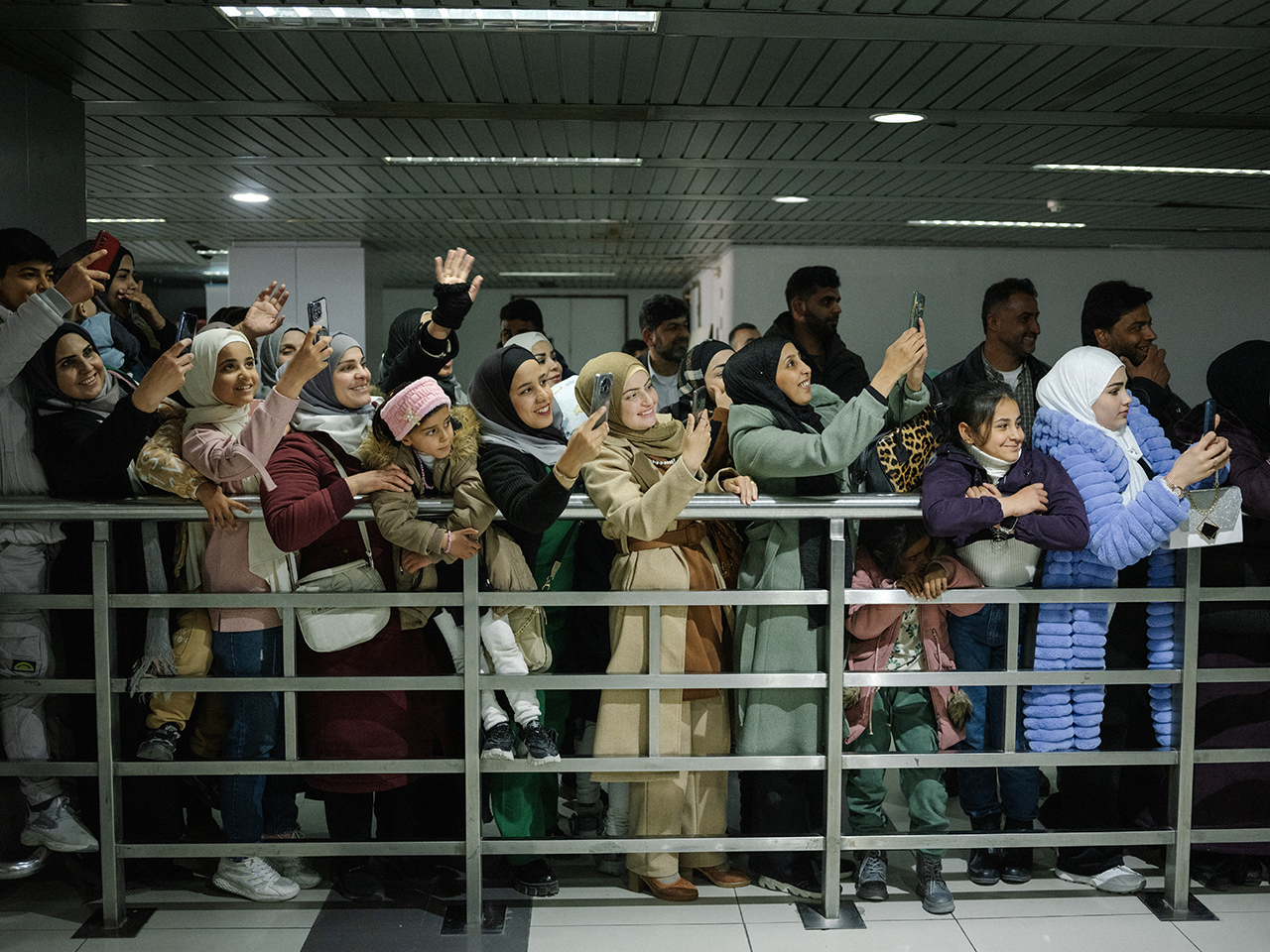
Close connection: People await the return of relatives at Damascus International Airport
Founded in 2017 by Romanian pilot Dan Iuhas, the airline has built its business operating on behalf of larger carriers, such as Transavia, TUI and Wizz Air. In recent years, however, it has shown a growing appetite for complexity. When Romania’s flag carrier, Tarom, suspended flights to Tel Aviv following the 2023 Hamas attacks, Dan Air stepped in to operate more than a dozen rescue flights for EU citizens. The airline also briefly pursued a partnership with Fly Baghdad – blacklisted in the EU – and even offered to support the Iraqi carrier in meeting European regulatory standards. The deal collapsed after Fly Baghdad’s CEO was sanctioned for alleged ties to Iran’s Islamic Revolutionary Guard Corps.
Now the Romanian carrier is turning its focus to Syria. Its CEO, Matt Ian David, says that the decision to offer a connection between the EU and Damascus was driven by the belief that aviation should “connect, not isolate”. Beyond the rhetoric, the numbers are persuasive. Germany is home to nearly 1.3 million people of Syrian origin; Sweden counts a further 250,000. With few efficient alternatives, Dan Air’s services from Berlin, Frankfurt and Stockholm (with a brief stop in Bucharest) promise to cut travel times by as many as 10 hours and serve a community with deep transnational ties. It’s a commercial gamble but a carefully considered one.
Dan Air isn’t the first to return to Syrian skies. Qatar Airways quietly resumed flights to Damascus in January just weeks after Bashar al-Assad fled the country, swiftly followed by Turkish Airlines. But these are not conventional competitors. Qatar Airways is a linchpin of Doha’s soft-power strategy, while Turkish Airlines functions as a diplomatic tool of Ankara, expanding into regions aligned with Turkish foreign interests. Both benefit from access to state-level intelligence and looser regulatory constraints – luxuries that Western carriers generally don’t enjoy.
Siebeck is Monocle’s Frankfurt correspondent. To read the rest of his piece, click here.
|
|
eurovision: switzerland
Eurovision returns to its roots with a blockbuster competition
It’s a homecoming party for the Eurovision Song Contest (writes Fernando Augusto Pacheco). This week the 69th edition of the competition will be held in Switzerland – the country that hosted the first iteration in 1956 and won it. Basel’s brasseries and bars are bustling ahead of tonight’s semi-final and there are rumours that Celine Dion will return to the stage for Saturday’s final. But regardless of whether or not Dion makes an appearance, Saturday will draw a titanic, international crowd.
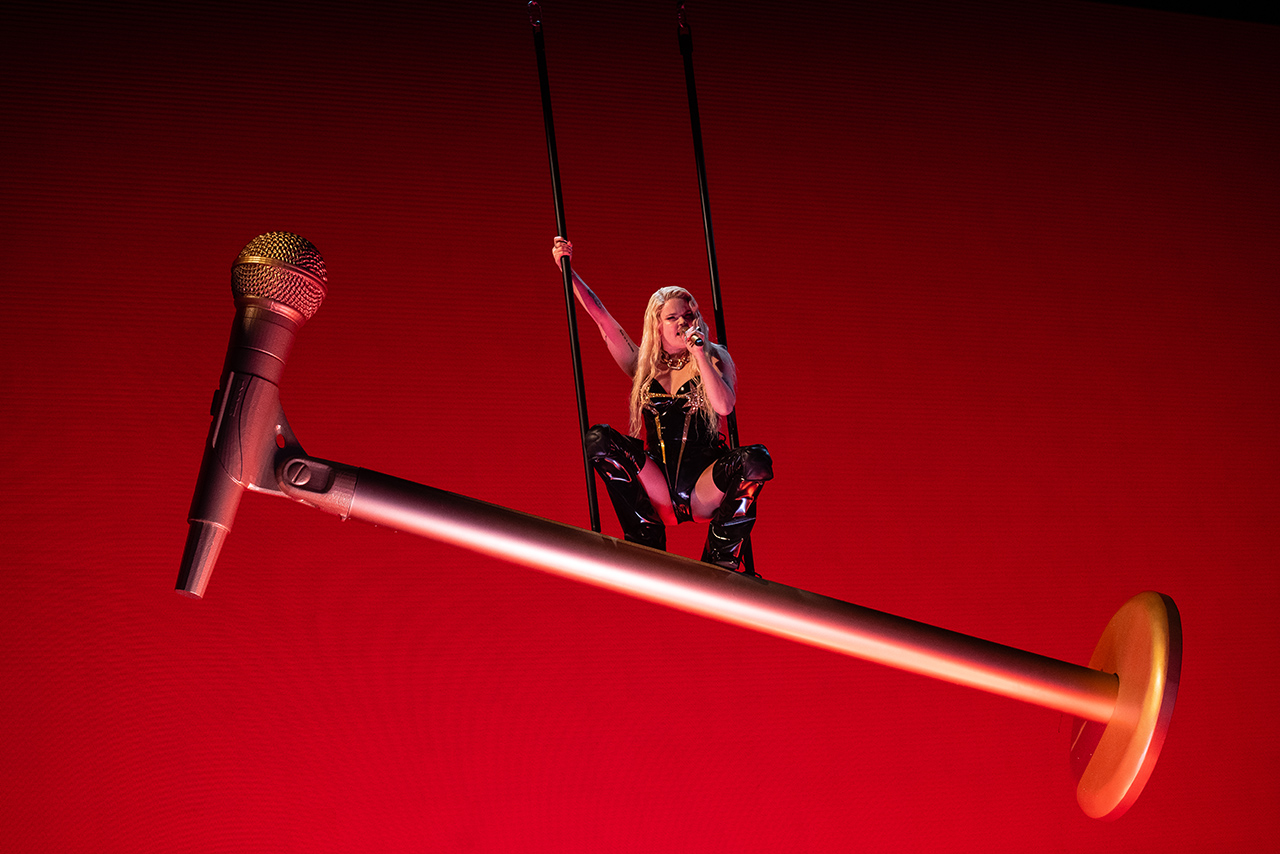
Mic drop: Erika Vikman performs “Ich Komme”
Martin Österdahl, the Eurovision Song Contest’s executive supervisor, is keen to point out that last year’s viewing figures surpassed those of the Super Bowl by a healthy 40 million. “Eurovision is the Super Bowl on steroids,” he said recently. Sweden is the favourite to win this year’s competition; its sauna-themed entry from comedy group KAJ already has Europeans bopping. But other countries should not be underestimated. Austria is going operatic with JJ’s “Wasted Love”; France is betting on one of its biggest pop stars, Louane, to deliver a winning ballad; and Finland’s entry, Erika Vikman’s “Ich Komme” (my personal favourite), is perfectly libidinous. As usual, this combination of extravagant pop and politically charged competition has something for everyone.
To read our full interview with Österdahl, click here.
|
|
Elections: Poland
Centrist Rafał Trzaskowski back on course for presidential victory
Poles will go to the polls this Sunday for the first round of voting to elect a new president to replace the outgoing Andrzej Duda (writes Alexis Self). For months the clear frontrunner to replace the right-wing Duda was Rafał Trzaskowski, the popular mayor of Warsaw who is seen as a rising star in prime minister Donald Tusk’s ruling Civic Coalition.
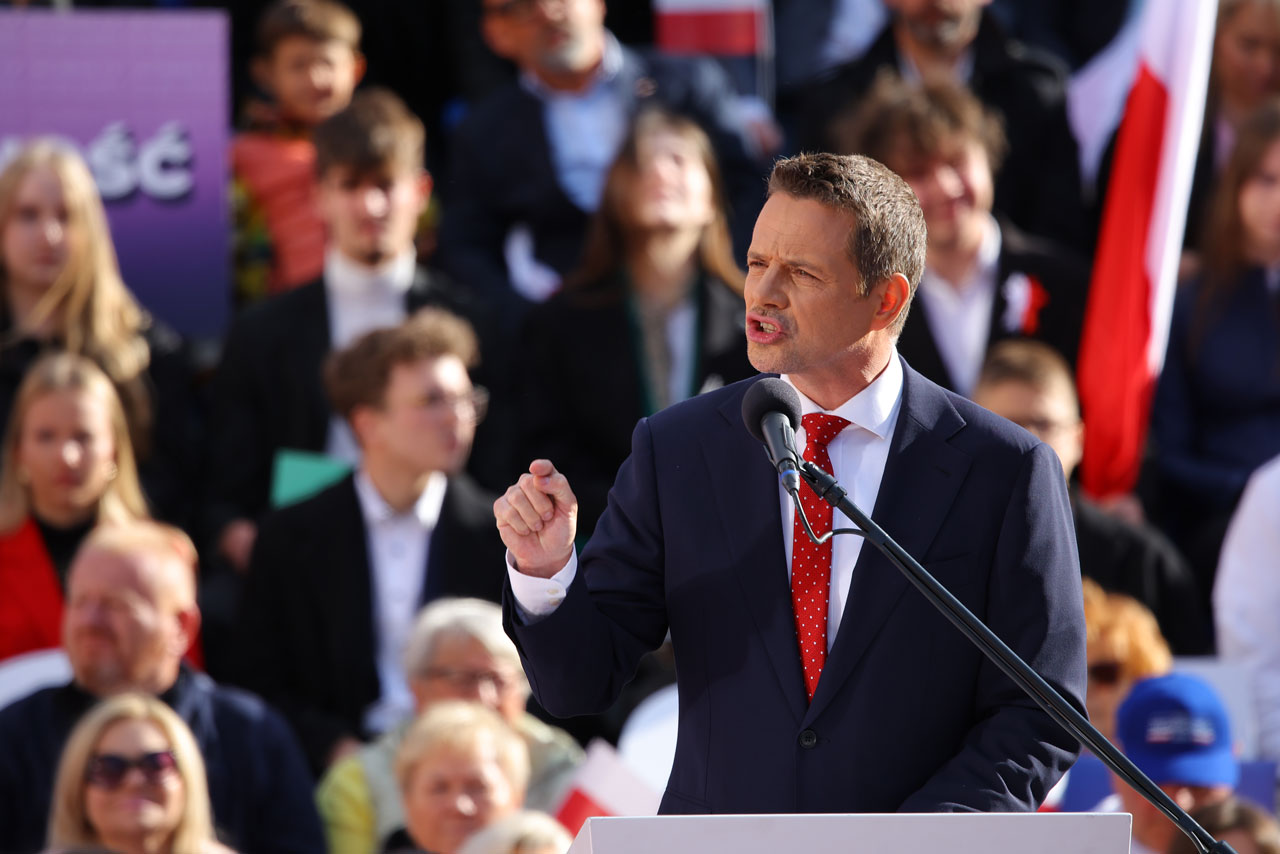
Holding the centre: Rafał Trzaskowski could become Poland’s next president
But in recent weeks polls had narrowed, opening up a potentially tight head to head between Trzaskowski and Karol Nawrocki of the far-right nationalist Law and Justice party. However, Nawrocki faced allegations of a dishonest apartment deal last week and the ensuing scandal resulted in a drop in his polling numbers. If, as expected, Trzaskowski is elected (a first-round victory will require more than 50 per cent of the vote), Poland will see its first centre-left prime minister and president pairing since 2005 – a victory that will provide further evidence of the bounce that Donald Trump’s chaotic rule in the US has given the world’s centrists.
|
|
culture: milan
Inequalities under the spotlight at Triennale Milano’s International Exhibition
Crowds will gather today at the Palazzo dell’Arte for the opening of Triennale Milano’s 24th International Exhibition (writes Ed Stocker). With a line-up of curators that includes Chicago’s Theaster Gates and the Norman Foster Foundation, Inequalities is a dense and timely showcase bringing together designers, artists and researchers from 43 countries.
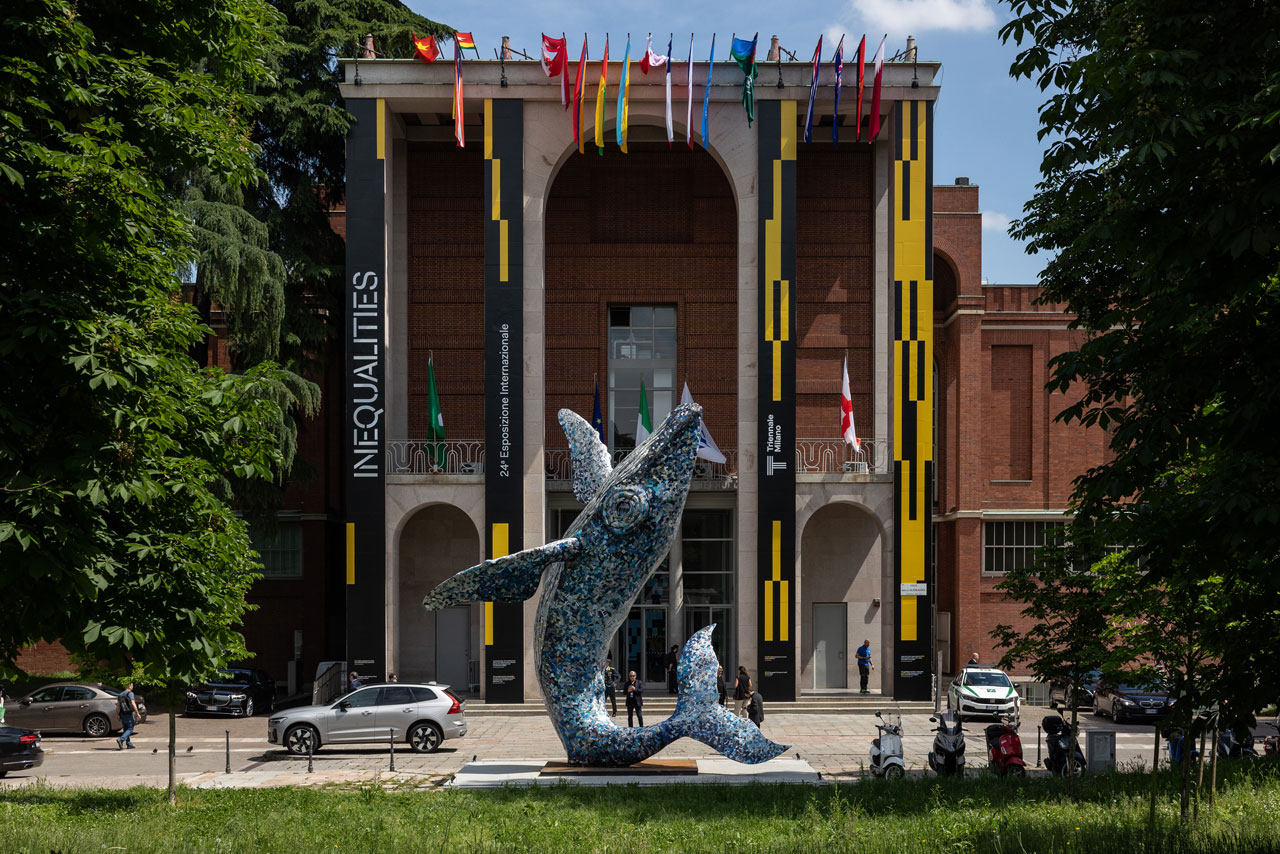
Fairer share: The ‘Inequalities’ showcase opens today
At its core, the show looks at what design and architecture can do to redress global disparities. The “Cities” section, for instance, curated by Nina Bassoli, focuses on urban planning; among the highlights is an installation about London’s Grenfell Tower fire tragedy, featuring quilts made by victims’ families. The 20 national pavilions are challenging and engaging: Togo’s installation on waste in the denim industry is particularly compelling. Poland’s reimagining of a future public bathhouse using recycled materials and heat also caught our eye.
|
|
The List: drinking and dining
The latest hospitality happenings, from Japan to Greece
Slice of the action
Japan has some of the world’s best pizza restaurants (writes Fiona Wilson). One of Tokyo’s most highly rated, Savoy in Azabu-Juban, has just opened a new branch in the northern city of Sapporo. Called Savoy Ezo, the restaurant occupies an unassuming basement location close to Sapporo station. Expect puffy-edged cornicione pizza topped with locally sourced ingredients such as lamb, whitebait and potatoes, and a glass of Hokkaido pinot noir.
Take a seat
London’s mayor, Sadiq Khan, has announced a new pilot scheme, the Summer Streets Fund (writes Carlota Rebelo). The project aims to improve the city’s alfresco offerings and extend opening hours over the sunnier months. Councils will work closely with venues to create new outdoor seating and help cut through red tape to dole out more late-night licences. Cheers!
All hail
The Greek transport ministry has a solution to drink driving: subsidising the cost of taxi rides over weekends (writes Jack Simpson). Designed to discourage the inebriated from getting behind the wheel, the plan might mean that taxi drivers will have to endure a few more unruly passengers – but a cheaper ride home is a good excuse to spend a few more euros at the bar.
|
|
Monocle Radio: THE MONOCLE WEEKLY
Lorcan Finnegan, director of ‘The Surfer’
We speak with Irish filmmaker Lorcan Finnegan about his new film, The Surfer, a sweaty psychological thriller featuring Nicolas Cage.
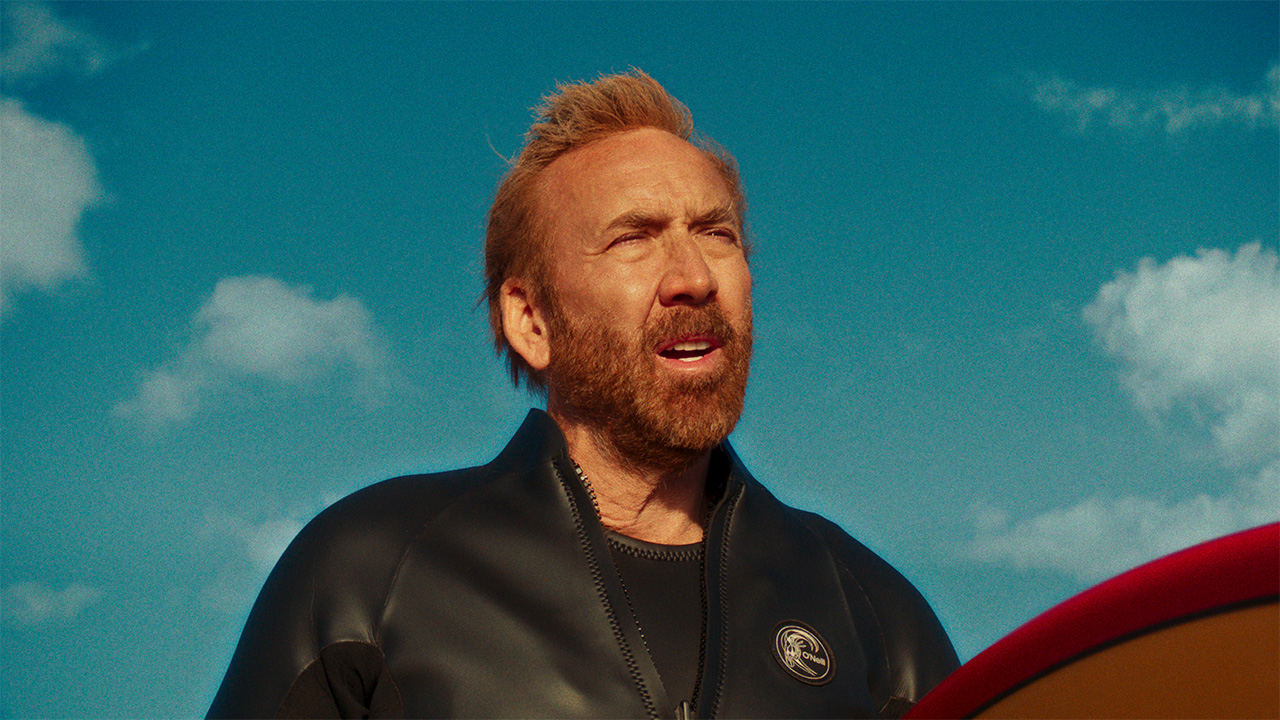
|
|
Newsletter:
Join us
Welcome to our world
Has this been forwarded to you
by a friend? Sign up to The
Monocle Minute and Monocle
Weekend Editions to receive your
own bulletin of weekday news and
weekend treats.
| | |